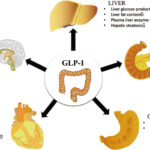
Female gang members could be placed under court injunctions and have their use of social media restricted to protect them from sexual exploitation and other violence under guidelines published by ministers today.
The Home Office document says police and local authorities should take action — including banning girls from mixing with other gang members — because of the “heightened risk” of sexual assault, rape and other forms of abuse that they face.
Other potential sanctions to protect girls could include restricting their use of social media or banning them from areas where male gang members live.
The new moves follow concerns about the scale of abuse suffered by some female gang members. A report by the former Deputy Children’s Commissioner two years ago found that thousands of girls in gangs were being sexually abused.
Today’s new guidelines, which spell out how to enforce strengthened antigang powers in the Serious Crime Act, quotes evidence that there are “significant levels of sexual victimisation within the gang environment”.
The guidelines state that another reason for injunctions is that female gang members are being coerced into carrying weapons and drugs — but they focus on the dangers faced by girls, and suggest that injunctions should be taken out even when they are unaware that their role in a gang is enabling crime to take place.
The document says: “Women and girls who are associated with gangs are at risk of violence, particularly sexual violence (including sexual assault, rape and sexual exploitation).”
It adds: “Female respondents may not… immediately recognise that they are doing anything wrong because they themselves may not be committing acts of gang-related violence or gang-related drug dealing.” The new guidelines relate to changes to gang injunctions contained in the Serious Crime Act passed this year.
The legislation widened the definition of a gang to make it easier to obtain injunctions. It also allows them to be imposed for the first time against gangs that engage in drug dealing. The potential sanctions, which must be authorised by a court, include barring gang members from meeting known associates or going to particular areas.
Restrictions on internet and social media use can also be imposed.
Today’s guidelines say that referral to services that specialise in helping sex abuse victims should be considered for female gang members.
Announcing the changes, Home Office minister Karen Bradley said: “Gang and youth violence has a devastating impact on the young people who get caught up in it, as well as their families and communities.
“It is not an issue that one agency or government department can tackle alone. It requires the police, teachers, social workers, housing officers, youth workers, employment advisers and others… to safeguard vulnerable young people and target the most violent.”
Gang injunctions were introduced in 2011 and can last for two years. Breaches are a civil offence but can result in a custodial sentence.
Evidence used to obtain injunctions can include hearsay testimony, CCTV, previous convictions, police intelligence and items seized during searches which indicate gang membership.
In 2013, the then Deputy Children’s Commissioner Sue Berelowitz warned that 2,500 girls were at risk from sexual violence by gangs in London alone.
At the same time the Standard reported the harrowing story of Kate, a girl from east London who was beaten, raped and forced to carry drugs after being drawn into a gang.
[“source-standard.co.uk”]







